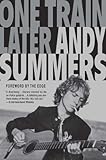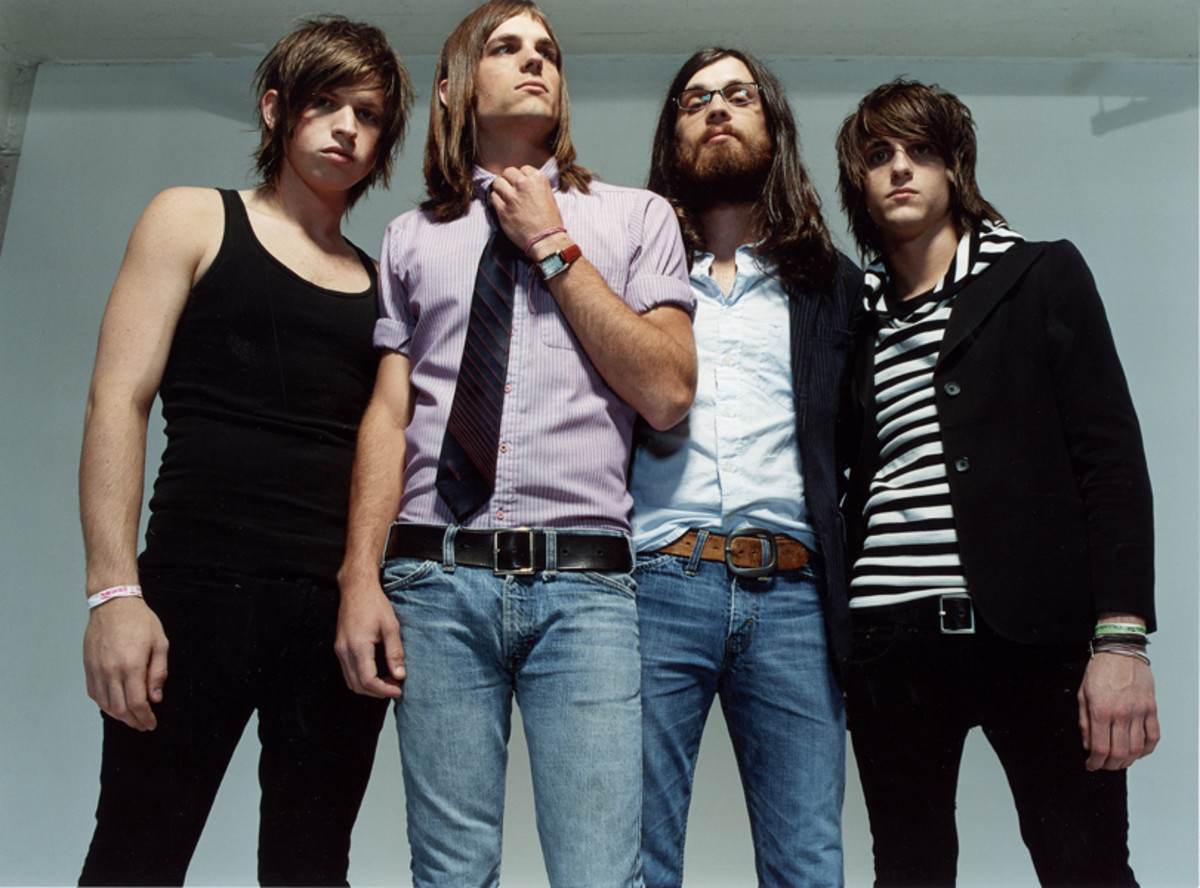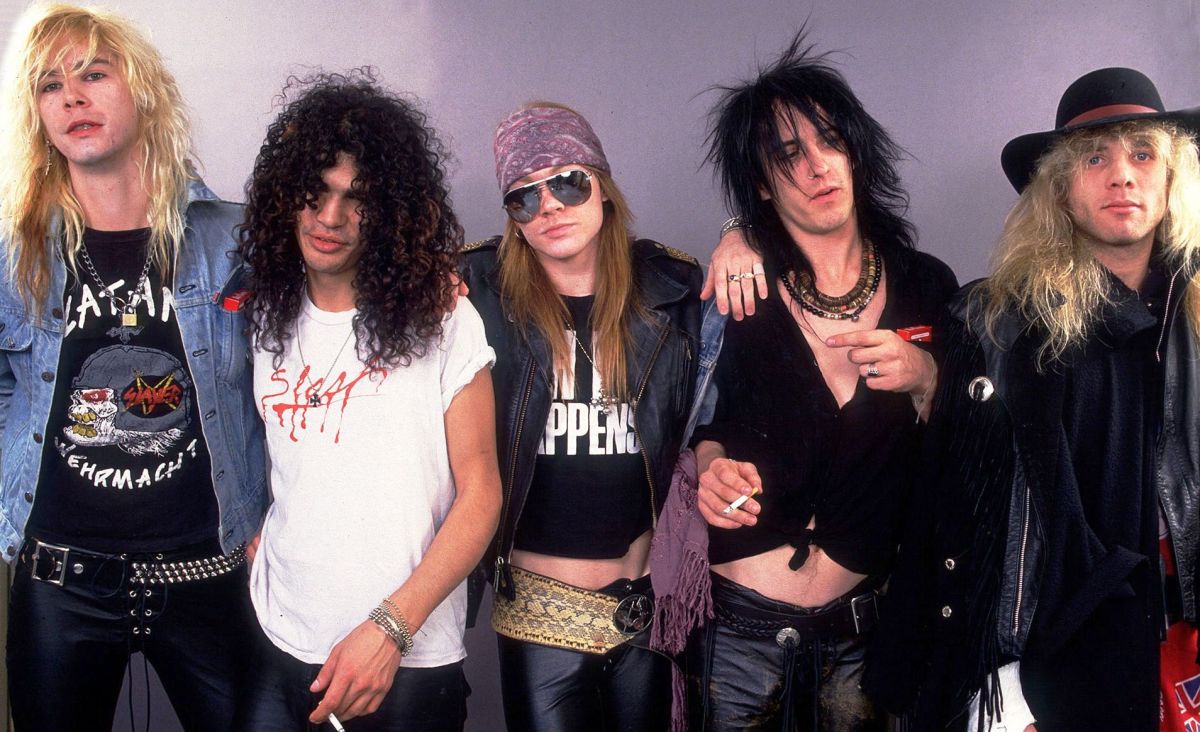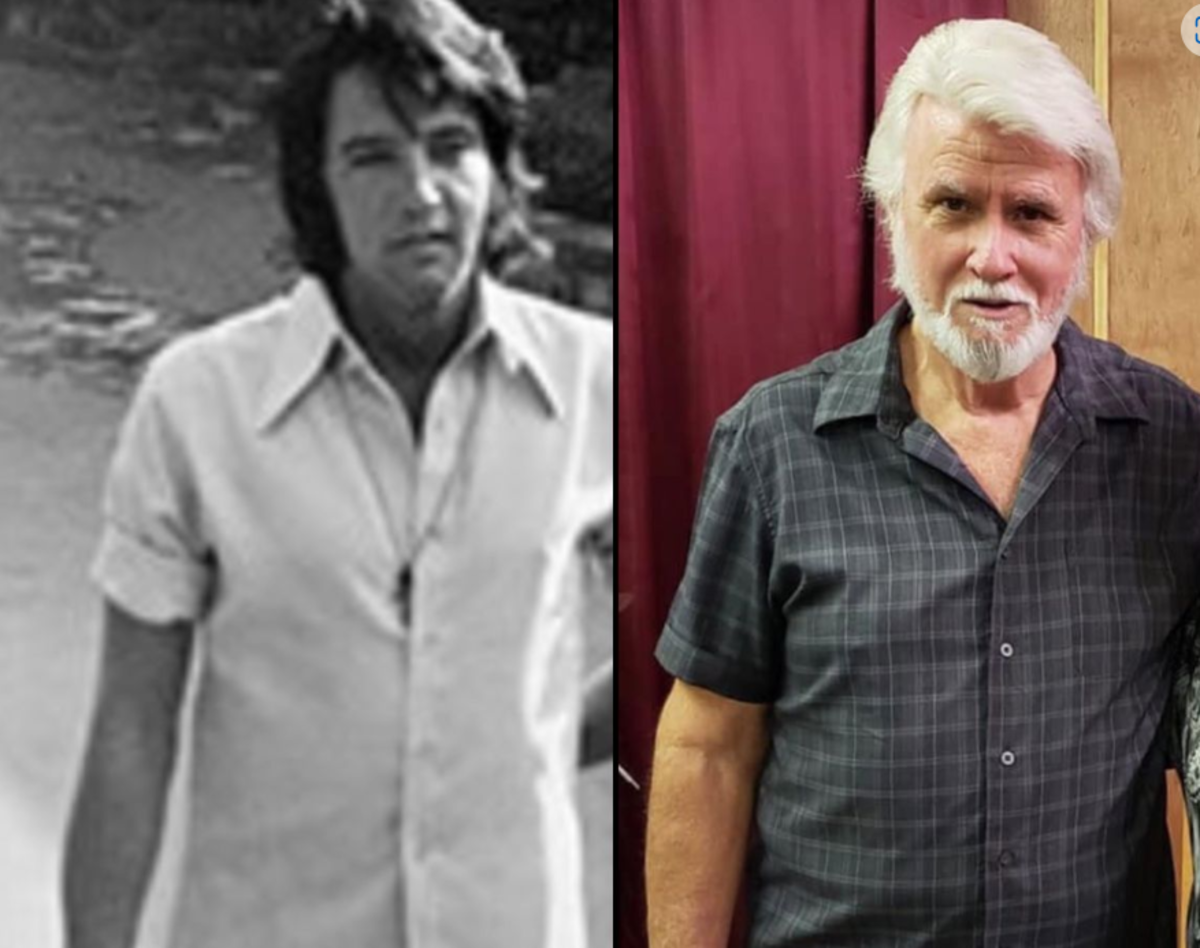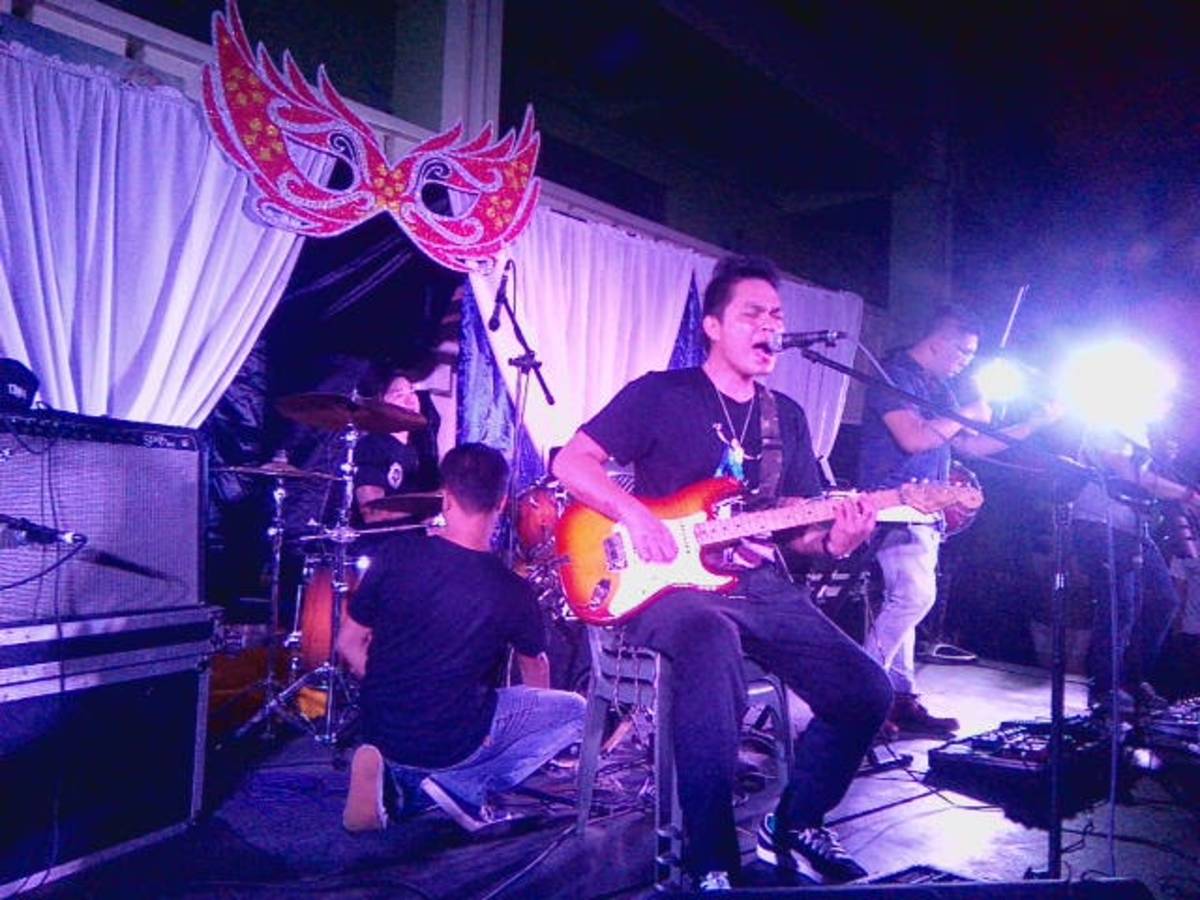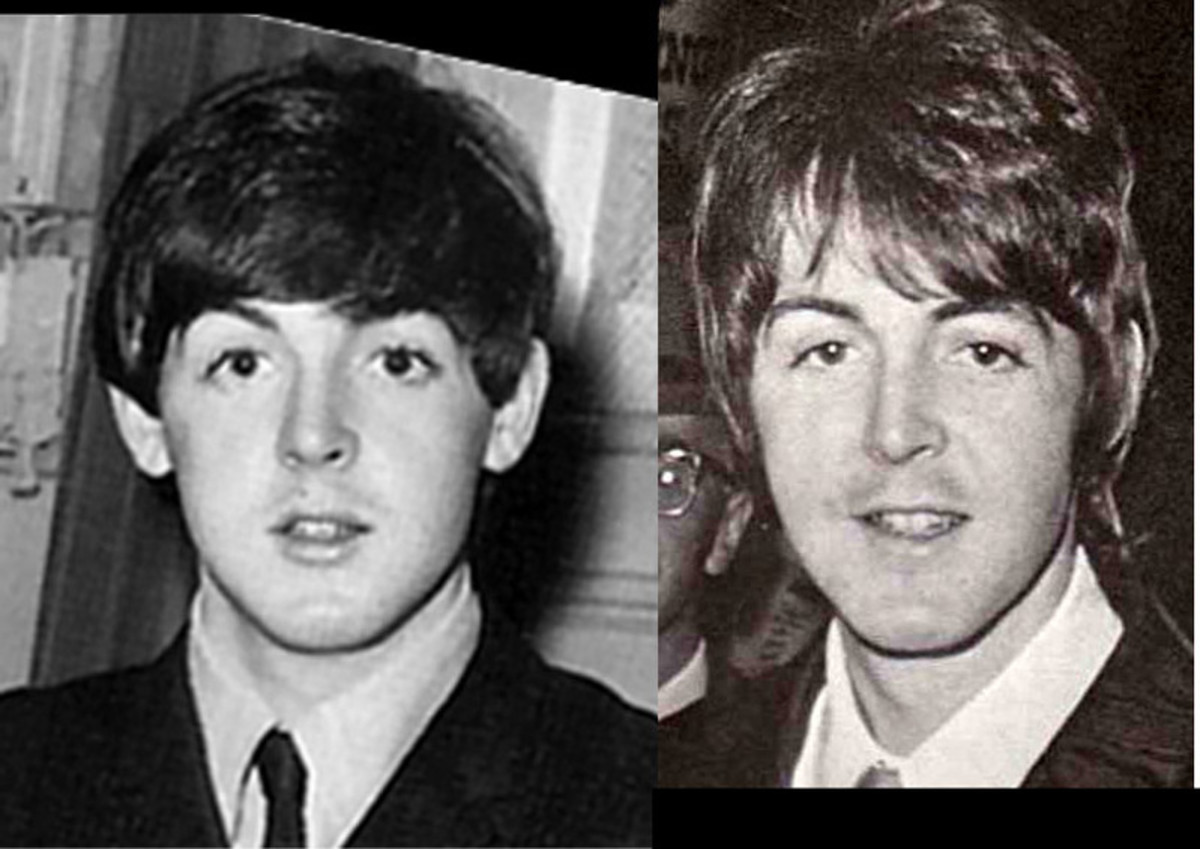A Beginner's Guide To The Police: Their Music and History
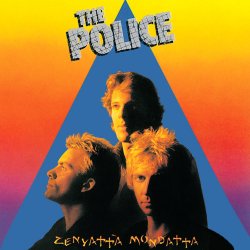
An Introduction To The Police
The Police were one of the hottest bands of the late 70s and early 80s, rocking the charts with such now-classic songs as "Roxanne", "Message in a Bottle", "Every Breath You Take" and "Don't Stand So Close To Me". Band members Sting, Stewart Copeland and Andy Summers created a highly unique sound for the time, combining punk and reggae with intelligent songwriting, catchy hooks and incredible musicianship. They also won many young female fans for their good looks and matching bleached-blond hairdos! Yet just at the height of their success, the band members went their separate ways, leaving many fans to wonder what could have been if they'd released more than their five classic studio albums. The band reformed for a two-year reunion tour in 2007-2008, but no new material resulted from the tour, leaving the legacy of their music firmly part of decades' past.
Classic rock groups continue to find many new fans today, and recently I've heard some express interest in learning more about The Police. Therefore I've compiled this "Beginner's Guide" to the band as a way of introduction to their story and their music: information on their albums, biggest hit songs, how the band came together and (as much as anyone outside of the band knows for sure) why it all fell apart. You'll also find plenty of links to sites where you can learn more, meet other fans, and also buy great merchandise related to The Police.
Message in a Bottle: One of The Police's Biggest Hits
About The Police: The Formation of The Band - A Brief Early History
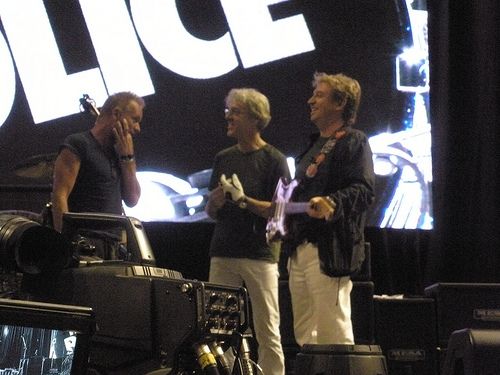
The Police as a band was the brainchild of drummer Stewart Copeland, who had the name for the group and a concept before he had any other band-members lined up. By 1976, Copeland had been involved in the music industry for several years, first as a road manager and now as the drummer for the progressive rock band Curved Air. But prog rock was dying, the music scene in England instead bursting with the vibrancy and urgency of the growing punk movement. Copeland wanted to cash in on punk, and found the bassist/singer for his band one night in December 1976 after one of the last Curved Air performances. They were in Newcastle and after the show, a friend, music journalist Phil Sutcliffe, took Copeland to see one of his favorite bands in action: Last Exit, which featured Gordon Sumner (known to his friends as "Sting" because of a black-and-yellow striped jumper he frequently wore) on bass and vocals. Copeland hated Last Exit's jazz-fusion sound but instantly saw potential in Sting, and invited him to come to London to join his new band.
It would be on January 9, 1977 that Sting followed up on Copeland's offer, meeting with him at his place in Mayfair in London to first jam with the drummer and hear of his ideas for a band. Copeland would bring in a Corsican guitarist named Henry Padovani to round out their trio: Padovani certainly had the right punk look, but the problem was he could barely play guitar. The group struggled through much of the first half of the year to find their sound and make an impression on the punk rock scene, recording and releasing their first single "Fall Out", which failed to make a great impression on the charts. Most of the band's songs at this time were written by Copeland - and not particularly liked by Sting, who wasn't especially keen on punk himself but frustrated by Padovani's limited guitar abilities.
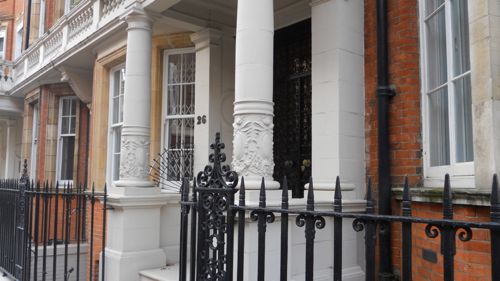
Things would begin to change in the middle of the year when Copeland and Sting would perform a one-off gig with bassist Mike Howlett and guitarist Andy Summers. The four of them called themselves Strontium 90, recorded a few demo tracks together, but it was an unworkable combination with two bassists in the mix. Still, Summers was an accomplished session guitarist looking to finally be a part of a successful band of his own. He wanted to join The Police, and for a brief time they were a four-piece band before Padovani was eventually asked to leave. Now with a more skilled guitarist in their group, Sting's songwriting began to flourish and the "real Police" began to come together with new material and a developing sound of their own.
Their first full-length album, Outlandos d'Amour, was recorded in January - March of 1978. Featuring a unique mix of punk, reggae, a touch of jazz-fusion and the skills of three talented, practiced musicians, it wasn't exactly what was coming out of the other punk bands at the time in the UK, and not immediately successful there, either. In October of 1978, they would set off on a no-budget, whirlwind tour of small music clubs in the United States, beginning at the legendary CBGB's in New York City. Some nights they only played to as few as six people - but at some such gigs, local DJs and music press would be in attendance who liked the fresh sound they heard from the band. The Police would start getting some radio airplay in the States, particularly "Roxanne." Eventually word-of-mouth began to spread and the song became enough of a success in the U.S. that it was actually re-released in the U.K. in April of 1979 as the band finally started getting notice in their home country.
The rest, as they say, is history...
You can learn more about the early and pre-Police efforts of the band members in my article "Before They Were The Police".
But Why "The Police"?
Stewart Copeland at a Police soundcheck. Photo by sockii.
Stewart Copeland came up with the name The Police for the simple fact of the "free publicity" his band would get all over the world. After all, there were "Police" cars on the streets, Police call boxes, Police stations...it was a marketing idea that paid off well.
The Police: Their Studio Albums - Studio Album Discography For The Band
The Police only recorded and released 5 studio albums between 1978 and 1983. Here is a little bit more about each of them.
Their debut album took a while to break into the charts - and in fact it was a no-budget tour of tiny clubs around America that first started gaining them momentum, whereas in England they were looked upon as a "fake" punk band thanks to their individual musical pedigrees. This album contains the classic reggae-rock tracks "Roxanne", "Can't Stand Losing You" and "So Lonely" and while a bit rough around the edges, presents the band at their freshest, rawest sound.
1979's "Reggatta De Blanc" is a perennial favorite of many of the band's biggest fans, as it includes two of their finest singles ever: "Message in a Bottle" and "Walking on the Moon". Stewart Copeland contributes several songs to the album, including the great "Does Everyone Stare" and the amusing "On Any Other Day". The sound is much more evolved than on Outlandos, yet still vibrant and full of energy.
1980's "Zenyatta Mondatta" was recorded in Amsterdam, in a rushed 4-week session (interrupted by performance dates) that generally left band members dissatisfied. Even so, the album contains the classic hits "De Do Do Do De Da Da Da" and "Don't Stand So Close To Me", and many fans praise its clean, classic pop sound.
1981's "Ghost In The Machine" noted a marked change in the band's sound, incorporating brass, piano and synthesizer to an extent not heard before. Recorded on Montserrat with a new producer, Hugh Padgham, it contains the hits "Spirits in the Material World", "Every Little Thing She Does Is Magic" and "Invisible Sun". It also contains several longtime fan favorite tracks including Stewart Copeland's "Darkness" and Andy Summers' "Omegaman".
Their final studio album, released in 1983, was their biggest commercial success and filled the airwaves with hit singles: "Every Breath You Take", "King of Pain", "Wrapped Around Your Finger", and "Synchronicity II". Also recorded on Montserrat, the sessions were more difficult as creative tensions were at a peak between the band members. Some say this album feels more like a Sting solo album with Stewart and Andy related to background musician status; I would not go that far but it is clear on this release that Sting is dominating their sound and musical choices, leading the way toward pursuing a solo career.
The Police: Going Out At The Top
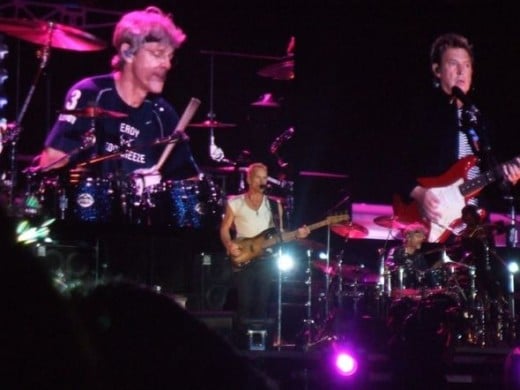
So, why did The Police call it a day after Synchronicity? Some have theorized that their differing, contrasting personalities were what fractured the group, although the band members themselves will say that the tension between them was more about the music and conflicting musical ideas than personal conflict. Creative tension was what led to some of their most inspiring, unique work, and yet, "To make a lifetime's career out of that tension wasn't possible. We all had to back away from it," said Sting in a 2000 article from Revolver magazine.
By 1985 Sting was at work on his own first solo album, The Dream of the Blue Turtles, which showed him taking a step away from the punk-rock origins of The Police (which he was never particularly comfortable with) and going back to the jazz-fusion sound of his earlier band, Last Exit. When the group tried to reunite in 1986 to record a few fresh tracks for a "Greatest Hits" release, the sessions were a failure that only resulted in two dismal re-recordings of their earlier hits, "Don't Stand So Close To Me" and "De Do Do Do De Da Da Da." (A 2003 article from Guitar World magazine gives a detailed story of just how and why these sessions went so poorly.)

Rumors and hopes persisted for years afterward that the band might reunite, particularly after the band was inducted into the Rock and Roll Hall of Fame in 2003 and performed several songs for the event. But an actual, full reunion would not take place until 2007 - marking 30 years since the band's formation. Their reunion tour would span from May 2007 - August 2008, ending with a final farewell performance at Madison Square Garden on August 7, 2008. Although there was much speculation that the band might record new material before or after the tour, that never came to fruition. Since the end of the tour, the band members have returned to their separate solo careers once more, and it seems highly unlikely another full scale tour or reunion will happen again....
The Police: Great Books To Read About The Band - Their Autobiographies and Other Titles
To learn more about the band and their history, these are some of the best titles worth checking out.
Sting's autobiography primarily concentrates on his early life, ending just after the band has flown to New York City for the first time to play at CBGBs. Even so, every fan of the band will find much of interest in these pages, and the path that lead Sting to joining the band - despite his musical inclinations being so different.
Stewart Copeland's autobiography skips and jumps through his life in anecdotal fashion, though again he does not dwell upon the Police years (which are covered in his film documentary). He talks a great deal about the "strange things" that happened to him after the band broke apart, and also what it was like reuniting in 2007-2008 after all those years apart.
Andy Summers' autobiography is perhaps the most introspective and self-deprecating. A fine writer, he talks of his early life and years as part of the "Swinging 60s" in England, the "lost years" of the 70s that brought him to wanting to join The Police - and then the madness of their greatest success. A film version of this book is scheduled for release in the summer of 2012.
The Police Live Double Album - Two Concerts From Two Different Time Periods
This double CD contains two nearly complete Police live performances: one recorded in Boston in 1979, for a radio broadcast, the other from Atlanta in 1983 - the concert also featured on the Synchronicity Concert video recording. Get all of The Police hits performed live, including "Roxanne", "Can't Stand Losing You", "Message in a Bottle", and much more.
The Police on DVD and Video - Classic Concerts, Documentaries and More

The Police: Live and In Concert
There are a number of live DVD and VHS recordings of The Police which you can check out. These are the official ones:
Stewart Copeland's documentary of the band takes an "inside-out" viewpoint - it is sourced almost entirely from his own Super 8 home movies shot during the band's years touring and recording. There's lots of fun stuff here, including Stewart's droll narration and a fun audio commentary track recorded by Stewart and Andy.
This classic concert recording from 1984 features the band at the peak of their success. While a bit dated with the video screen affects, it's a fun trip back to the mid-1980s to enjoy the band in all of their glory.
Never released on DVD, you can still easily find this 1995 video release for sale today. It's a solid documentary on the band, featuring interviews with each band member and also Miles Copeland III. It contains some clips of the band performing live and on various TV shows that are not available elsewhere.
This classic VHS tape is one fans have been screaming to see released on DVD for years. Documenting the band's first major world tour, it features great live footage of the band at perhaps their musical finest performing in Japan, Hong Kong, Australia, India, South America and elsewhere. There's plenty of great backstage footage and fun scenes of the band playing tourist, dressing up, and even Andy taking on a sumo wrestler!
The Police Return Triumphant at the Grammys 2007!
The Police: Their Solo Careers - Sting, Stewart Copeland and Andy Summers on Their Own
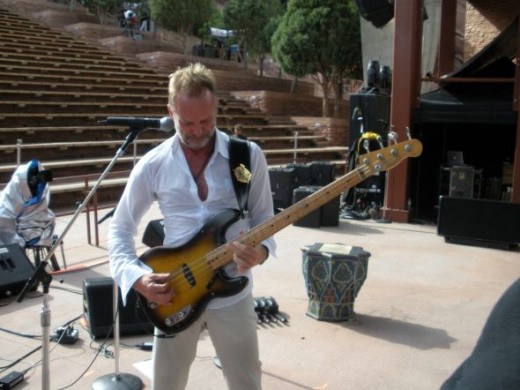
Sting on stage at a Police soundcheck in Denver, Colorado, July 2008. Photograph by the author, sockii.
In the years after the end of the Synchronicity World Tour, each member of the band has kept extremely active pursuing very different career paths.
Sting, of course, became a hugely popular solo pop artist, releasing ten studio albums, live recordings, and scoring numerous hit singles and awards. He is involved in many charitable causes including The Rainforest Foundation, which he founded with his wife Trudie Styler. He has also occasionally dabbled in acting both on screen and stage and continues to tour the world regularly, performing his hits old and new alike.
Stewart Copeland has kept extremely busy as a highly in-demand film and television scorer. He has also been involved in several other rock groups, including Oysterhead, Gizmo and Animal Logic, as well as esoteric projects such as composing operas, ballets and orchestral work. He has toured Europe in the summer months with Stanley Clarke and even Italian folk music groups. These days he has his own YouTube channel where he shares fabulous jams with other musicians at his studio The Sacred Grove.
Andy Summers has recorded numerous solo albums, primarily in the jazz/new age/fusion genres. He is also an avid photographer who has released several books of photography and had his work shown in numerous gallery exhibits. In the fall of 2012, the film version of his autobiography, "One Train Later", premiered in New York City.

The Best Police Websites - Where To Learn More About The Band (And Band Members)
These official and fan-run websites are where you'll want to go to learn more about the band, interact with their fan community, and check out the great collectibles out there today.
- The Police - Official Website
The band's official website, launched for the 2007 Reunion Tour. Although not actively updated today, there are still some great resources, official videos from the tour, and a message board forum. - Sting - Official Website
Sting's official website. While some resources and information is freely available, you will have to become a paid member to access the forum and be able to enter contests, ticket presales, and other special offerings. - Stewart Copeland - Official Website
Stewart's official website, run by "Team Italia". Lots of news, exclusive info and photos, and an active messageboard forum. Stewart himself occasionally posts on the board and is very involved with his fans. - Andy Summers - Official Website
Andy's official site, featuring his music, writing and photography work. - The Police Tour - Official Site
Official Site for Rare Records and Memorabilia. - The PoliceWiki
A fan-run "wiki" all about The Police. Features detailed day-by-day history of the band members including tour performances, recording dates, public appearances and also an extensive photo and memorabilia library. - Stingus
A Sting (and Police) fansite which has been active on-line for many years. Features an active messageboard forum, predominantly of Sting-focused fans. - Sting etc.
Another long-standing (since 1995) Sting & Police fansite. You can find lyrics, FAQs, merchandise and other useful info here. - Rogier's Police Page
Rogier's page is a great resource for concert and performance history, along with transcriptions of several classic articles about the band.
My Other HubPages about The Police
- Stewart Copeland Soundtracks
Musician Stewart Copeland is mostly known as the drummer for the rock band The Police. However, Stewart has also composed the soundtracks to many films and tv series through the years. - Stewart, Sting, Andy and Henry: The Police Autobiogr...
Each member of the Police: Sting, Stewart Copeland, Andy Summers and yes, Henry Padovani - have now released their autobiographies. Here you will find some basic information on each. - The Police Reunion Tour 2007-2008: My Wild Adventure...
In February 2007, the classic rock band from the 70s and 80s The Police announced what many fans had dreamed of for decades: thirty years after the release of their single "Roxanne," they would be going on a worldwide reunion tour. Sting, Stewart... - Stewart Copeland - The Rhythmatist of The Police
Most people know Stewart Copeland as the drummer for the rock band The Police. But while his work with Sting and Andy Summers was some of his most popular, Stewart has had a long and interesting career since his years with that band. He has been... - Can't Stand Losing You: Surviving The Police
All about the documentary film following musician Andy Summers' life in an outside of The Police. - The Ultimate Police Fan Survey
Do you love the music of The Police? If so, take my - Guitarist Andy Summers of The Police
Andy Summers is one of the most influential guitarists of the 1970s, 1980s and beyond! Learn more about this incredible musician beyond his work with The Police.
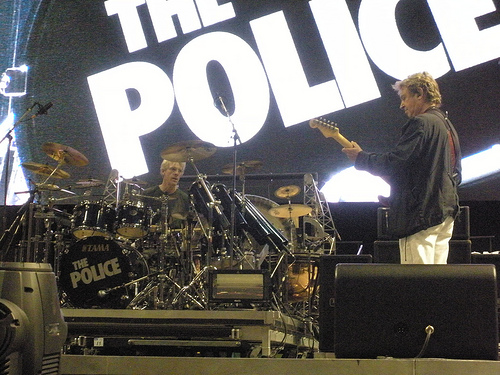
I hope you enjoyed this "Beginner's Guide to The Police" and that it helped point you toward some useful information and resources about the band. Any other questions or comments? Feel free to leave them here!

![Reggatta de Blanc [Digipak]](https://m.media-amazon.com/images/I/41l-xI4EtTL._SL160_.jpg)
![Zenyatta Mondatta [Digipak]](https://m.media-amazon.com/images/I/511t8ffC7JL._SL160_.jpg)
![Ghost In The Machine [Digipak]](https://m.media-amazon.com/images/I/418wQS3yGTL._SL160_.jpg)
![Synchronicity [Digipak]](https://m.media-amazon.com/images/I/51fnPykTTcL._SL160_.jpg)


